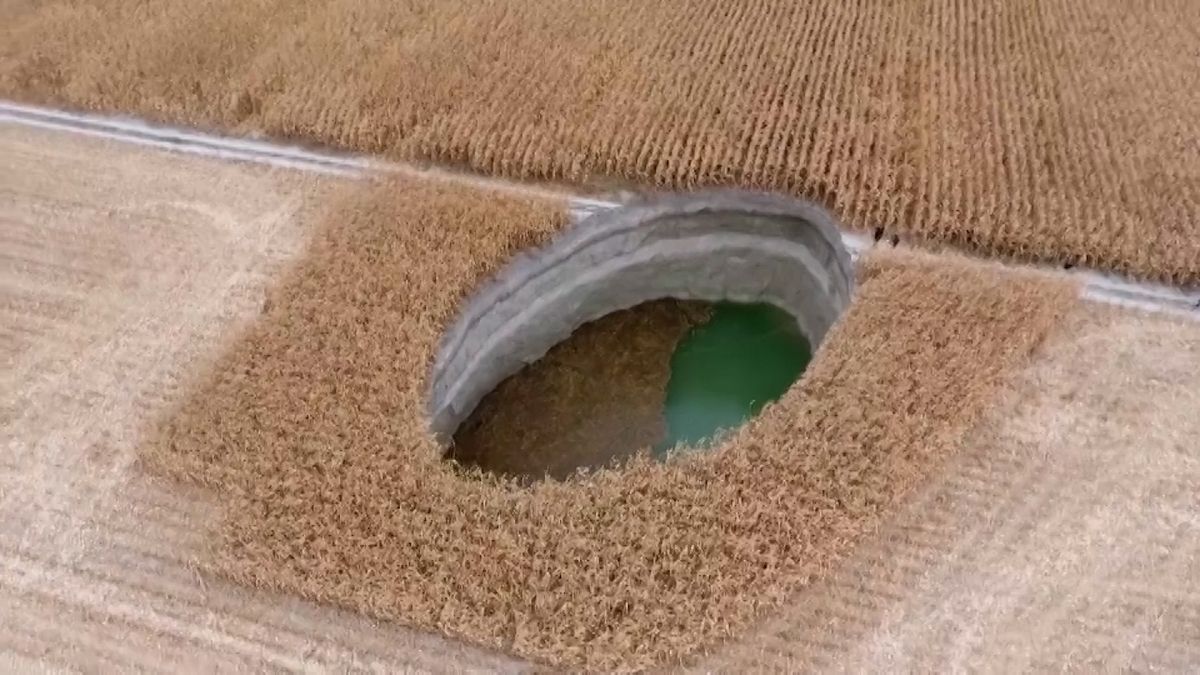Turkey’s Konya Plain is currently under threat from over 2,600 sinkholes that are posing a danger to both agriculture and residential areas. The sinkholes, ranging in size, are becoming closer to homes and threatening the livelihoods of farmers in the region. This surge in sinkholes is primarily attributed to drought and the excessive use of underground water, which is causing the ground to collapse. Districts such as Cihanbeyli, Yunak, Kulu, Sarayonu, and Kadinhani, known for their cereal production, are among the most affected areas.
The Disaster and Emergency Management Authority (AFAD) and the Sinkhole Application Research Center at Konya Technical University are closely monitoring the situation and working on preventive measures to mitigate the impact of the sinkholes. The current data suggests that the sinkholes are moving closer to populated areas, energy investment zones, and places with high agricultural activity, signaling a growing concern for the residents and farmers in the region. While sinkholes are a natural phenomenon, human activities such as overuse of underground water are exacerbating the situation and leading to a higher number of sinkholes in the area.
The Konya Plain is often referred to as “the country’s granary” due to its fertile soil and high agricultural productivity. However, the increasing threat of sinkholes is putting this title at risk as farmers struggle to protect their crops and homes from the collapsing ground. The sinkholes not only pose a threat to agriculture but also to the safety of residents living in the affected areas. With the sinkholes advancing towards populated regions, it is crucial for authorities to take proactive measures to prevent further damage and safeguard the livelihoods of the people in the region.
Experts emphasize that while sinkholes are a natural occurrence, human activities can accelerate their formation and increase their frequency. The uncontrolled use of underground water, coupled with drought conditions, is creating the perfect environment for sinkholes to emerge and expand in the Konya Plain. It is essential for policymakers, farmers, and residents to work together to address the root causes of the sinkhole crisis and implement sustainable practices that can help preserve the region’s natural resources and protect it from further damage. By raising awareness about the impact of excessive water use and promoting responsible water management, it is possible to mitigate the threat of sinkholes and ensure the long-term sustainability of agriculture and residential areas in the Konya Plain.
In conclusion, the surge in sinkholes in Turkey’s Konya Plain poses a significant threat to agriculture and residential areas, driven by drought and excessive water use. With over 2,600 sinkholes reported in the region, authorities and experts are working on preventive measures to minimize the impact of these geological hazards. The increasing proximity of sinkholes to populated regions and areas of high agricultural activity underscores the urgent need for sustainable water management practices and proactive measures to safeguard the livelihoods of farmers and residents in the Konya Plain. By addressing the root causes of the sinkhole crisis and promoting responsible water use, it is possible to protect the region’s fertile soil and ensure the long-term sustainability of agriculture in the “granary” of Turkey.










